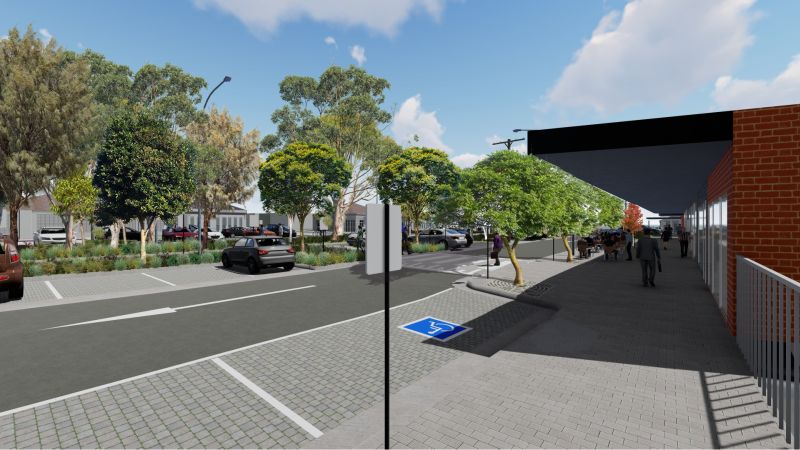One year since the final report of the Royal Commission into Aged Care Quality and Safety, the Morrison Government has achieved significant reform across the five pillars of its five year plan to deliver respect, care and dignity for every senior Australian.
Minister for Health and Aged Care, Greg Hunt, and Minister for Senior Australians and Aged Care Services, Richard Colbeck, said the Government called the Royal Commission because it recognised change was needed.
“We responded to the recommendations and are now implementing this once-in-a-generation reform that puts senior Australians first,” Minister Hunt said.
“Our financial commitment is now more than $18.3 billion to fund this agenda for change across home care, residential care, quality and safety, workforce and governance.”
The Government’s comprehensive response to all 148 recommendations outlines a five-year plan to reinforce the quality of care for senior Australians.
Minister Hunt said the establishment of the National Aged Care Advisory Group and the Council of Elders was another important step to ensure tangible outcomes and support for the implementation of the reforms.
“The continued implementation of the reforms are now guided by these two important groups of representatives to ensure each measure that is introduced continues to meet the needs and expectations of senior Australians, families, carers and the wider community,” Minister Hunt said.
“To make access to aged care services easier to navigate, we have begun rolling out in-person help at many Services Australia centres, local care finders, a regional network pilot, and aligned with a program to better connect culturally and linguistically diverse seniors, families and carers.”
More than 33,000 extra training places have been created for people who want to work in aged care, and 191 registered nurses have joined the new Aged Care Transition to Practice Program.
The Government has also awarded 115 scholarships to increase the knowledge and skills of nurses working in aged care.
To encourage registered nurses to stay in aged car, we’ve introduced the Aged Care Registered Nurses’ Payment, and nurses in rural and remote areas will receive an additional annual payment.
Minister Colbeck said a key priority in the first year of reform had been to boost home care packages.
“We recognise that most Australians want to stay in their own home as they get older, and home care packages make that possible,” Minister Colbeck said.
“At the end of 2021, 217,724 senior Australians had access to a home care package – that’s up 25 per cent since the end of 2020, thanks to the rollout of the first of the 80,000 packages announced in response to the Royal Commission.
“In the same period, the priority waiting list has come down by 29 per cent and for those assessed as a high priority receiving a package within a month.
“There is greater transparency in home care funding, with the Government paying providers monthly which means the maximum amount of package funds go towards a person’s support.
“Residential aged care providers are also receiving extra funding of $10 per resident per day to improve care and services, especially food and nutrition, and must report care staffing minutes to make sure senior Australians get appropriate care.”
To ensure the safety of senior Australians, we introduced the Serious Incident Reporting Scheme, electronic medication charts, improved quality indicators, and ensured that restrictive practices can only be used as a last resort.
Our Government has also established a new Workforce Advisory Service to support providers, which provides free, independent and confidential help with workforce planning.
We’ve also provided more than $100 million in funding to support nearly 200 residential aged care providers to improve their financial viability through the Business Improvement Fund.
Further measures to support the sustainability of the sector currently before Parliament (The Aged Care and Other Legislation Amendment Royal Commission Response Bill.2) include:
- The introduction of the funding model for aged care, the Australian National Aged Care Classification (AN-ACC) will be introduced from October 1, 2022 and will deliver a funding boost to increase the amount of front line care to residents. The AN ACC will deliver more than $3.9 billion in increased funding to rural and remote residential aged care services, as well as specialised homeless and remote Indigenous services, to reflect the increased costs of delivering care in these services;
- A registration scheme which will provide a nationally consistent pre-employment screening for aged care workers of approved providers to replace existing police checking obligations; and
- An expansion of the Serious Incident Response Scheme to home and flexible care from July 1, 2022.
The expanded Independent Hospital Pricing Authority has also commenced work on aged care pricing, and will consider the delivery of high quality care as a central pillar of its work, with recommendations to be made to Government for the 2023-24 Budget.
Change of this magnitude needs diverse input and collaboration across the aged care sector and the community, so a big thanks is owed to all who have engaged with us so far
More than 4000 people have engaged on reforms such as quality improvements, star ratings and the new support at home program, and more than 18,000 people have participated in webinars.
The next stage of the reforms is underway including the draft legislation of a new Aged Care Act; quality of life indicators; the new support at home program; innovative, dementia-friendly accommodation design; and dementia education and training.
For more information and to engage in the design of upcoming changes, visit the Aged Care Engagement Hub at www.agedcareengagement.health.gov.au or call 1800 200 422.

